Which Herbs Go Well Together? Our Overview Table
Not all herbs get along well with each other. We have summarized in a large table which herbs go together and which don’t.
Countless herbs are worth growing in the garden yourself. These come from the most diverse regions of the world and would probably never all come together without our help. As in real life, some get along well, and others should be kept at a distance. But which herbs go well together? We give tips and information on how to best structure your herb bed. Mixed cultures of herbs can have positive effects because herbs can have a positive influence on each other.
You May Also Like Parsley Types
These herbs go together
Many factors are decisive for a good neighborhood:
- Similar location requirements: Herbs with similar demands on their environment – such as solar radiation, soil, and nutrients – have the best prerequisites for being good neighbors. Herbal soils such as our organic herb & sowing soil from Gardender are adapted to the needs of many herbs and thus make their contribution to good neighbors.
- Growth: If two herbs grow at about the same rate, there is no risk of one overgrowing the other. In this way, both herbs can thrive side by side without displacing one another.
- Ingredients: Do you love rosemary? You are not alone in this, basil is entire of your opinion. The intense scent of herbs already indicates that they are rich in ingredients. These also get to neighboring herbs through water, air, or soil. In some cases, the ingredients of one herb can have a positive effect on the other in terms of growth, disease tolerance, or taste.
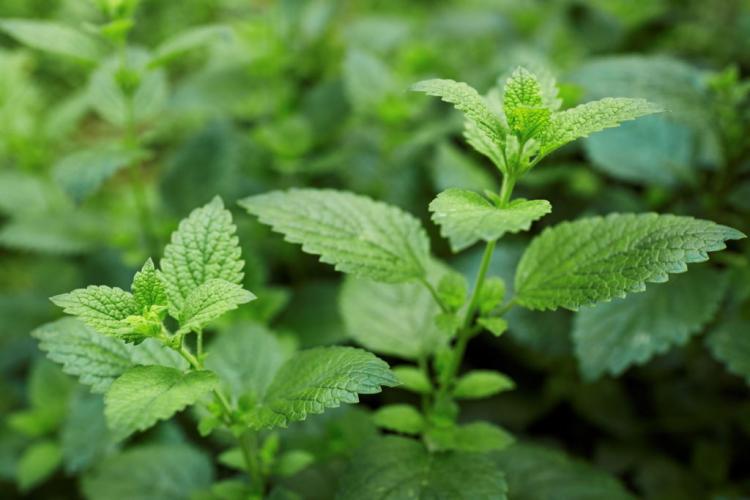
| herb | Suitable partners in the herb bed |
|---|---|
| Rosemary ( Rosmarinus officinalis ), thyme ( Thymus vulgaris ), lavender ( Lavandula ), sage ( Salvia officinalis ), hyssop ( Hyssopus officinalis ), savory ( Satureja montana ) | Due to similar demands on the location (sunny, warm, nutrient-poor, basic pH value), they get along well with each other |
| Rosemary ( Rosmarinus officinalis ) | Rosemary promotes the growth of basil ( Ocimum basilicum ) |
| Sage ( salvia ) | Promotes the growth of oregano ( Origanum vulgare ) and savory ( Satureja ) |
| Thyme ( Thymus vulgaris ) | Goes well with fennel ( Foeniculum vulgare ), coriander ( Coriandrum sativum ), tarragon ( Artemisia dracunculus ), borage ( Borago Officinalis ), and Mediterranean herbs (see above) |
| Chamomile ( Matricaria chamomilla ) | Promotes the growth of dill ( Anethum graveolens ), chives ( Allium schoenoprasum ), marjoram ( Origanum majorana ), chervil ( Anthriscus cerefolium ), and pimpinelle ( Sanguisorba minor ) |
| Parsley ( Petrosilium crispum ssp. Crispum ) | Goes well with chives ( Allium schoenoprasum ), basil ( Ocimum basilicum ), coriander ( Coriandrum sativum ), tarragon ( Artemisia dracunculus ), pimpinelle ( Sanguisorba minor ) |
| Hyssop ( hyssopus officinalis ) | Promotes the growth of lavender and savory |
| Basil ( Ocimum basilicum ) | Goes well with almost all herbs |
| Lovage ( Levisticum officinale ) | Promotes the growth of fennel and parsley ( Petroselinum crispum ssp. Crispum ) |
| Borage ( Borago officinalis ) | Goes well with almost all herbs |
| Lemon balm ( Melissa officinalis ) | Goes well with almost all herbs |
These herbs do not get along well
There are several reasons why some herbs may be less fond of each other:
- Annual and perennial herbs: In principle, annual and perennial herbs are compatible with each other, but the perennial herb is severely disturbed if its annual neighbor is dug up and replaced with a new one every year.
- Demands on the location: Mediterranean herbs love the sun, nutrient-poor, and alkaline soil and like it a little drier. Lemon balm and mint are happy about a somewhat shadier and nutrient-rich location. So it is logical that the two groups cannot grow so close together.
- Competition: Some herbs are very vigorous and would simply displace slow-growing species. You should keep such species at a distance.
- Ingredients: Herbs are rich in essential oils and other ingredients. That’s why we value them so much. But not every herb can tolerate the substances that its neighbor produces. Such cases can lead to stunted growth or even death of the plant. For this reason, garden cress, for example, is rather unpopular as a neighbor for many plants.
You might so like: How To Grow Microgreens: Step By Step Growing Guide
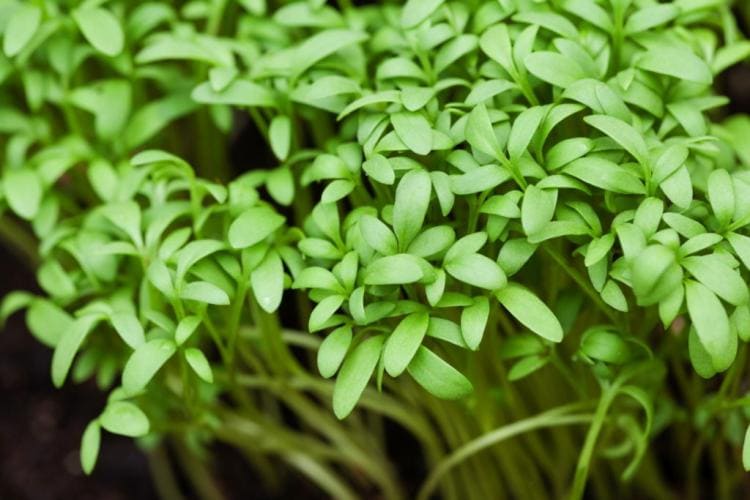
If you take these principles into account, you can find out many good and bad variants yourself if you find out about location requirements and growth behavior. Nevertheless, we have put together a table for you with herbs that do not go well with each other.
| herb | Does not get along with |
|---|---|
| Dill ( anethum graveolens ) | Cress ( Lepidium sativum ), fennel ( Foeniculum vulgare ), caraway ( Carum carvi ), tarragon ( Artemisia dracunculus ) |
| Basil ( Ocimum basilicum ) | Lemon balm ( Melissa officinalis ), mint ( Mentha ) |
| Parsley ( Petroselinum crispum ssp. Crispum ) | Chervil ( Anthriscus ), dill ( Anethum graveolens ) |
| Lemon balm ( Melissa officinalis ) | Basil ( Ocimum basilicum ) |
| Fennel ( Foeniculum vulgare ) | Coriander ( Coriandrum sativum ), dill ( Anethum graveolens ), cress ( Lepidium sativum ), marjoram ( Origanum majorana ), caraway ( Carum carvi ) |
| Peppermint ( Mentha x Piperita ) | Chamomile ( Matricaria chamomilla ) |
| Garden cress ( Lepidium sativum ) | Dill ( Anethum graveolens ), fennel ( Foeniculum vulgare ), coriander ( Coriandrum sativum ), parsley ( Petroselinum crispum ssp. crispum ), rocket ( Eruca vesicaria ), chervil ( Anthriscus ) |
| Marjoram ( Origanum majorana ) | Fennel ( Foeniculum vulgare ), thyme ( Thymus ) |
| Thyme ( thymus ) | Marjoram ( Origanum majorana ) |
A good way to keep herbs that do not get along so well in a confined space is to create a herb spiral. Here you can create moist and dry, lean and nutrient-rich microzones.
So that your herbs can develop their full aroma, they should be fertilized from time to time. You can also get an overview of immune-boosting herbs here.
You might so like:
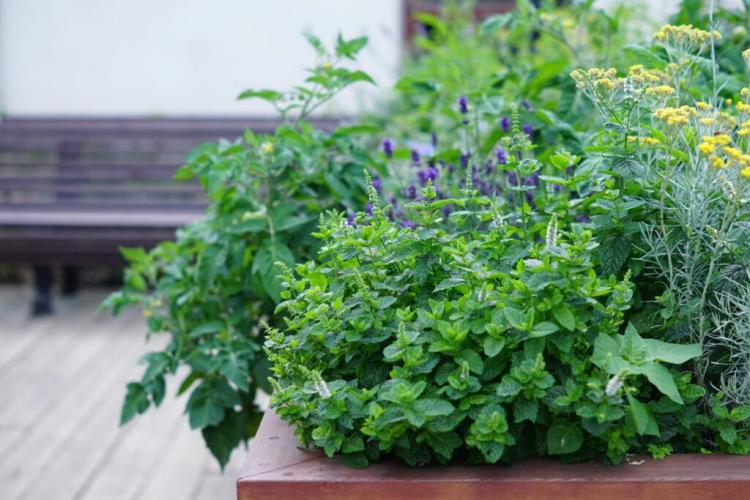
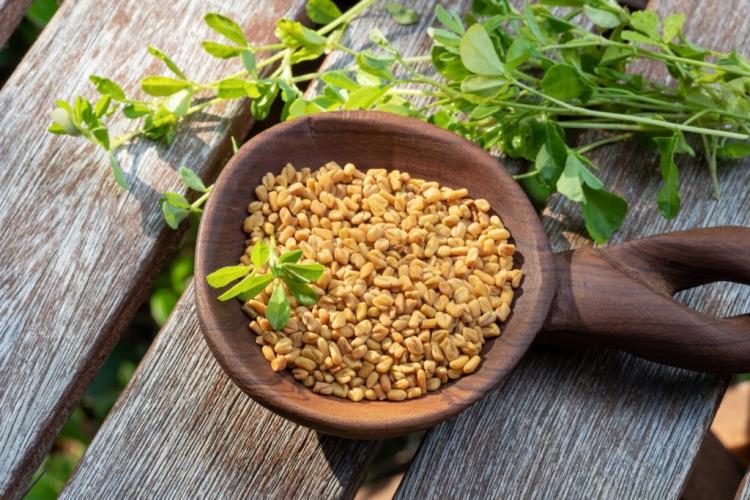
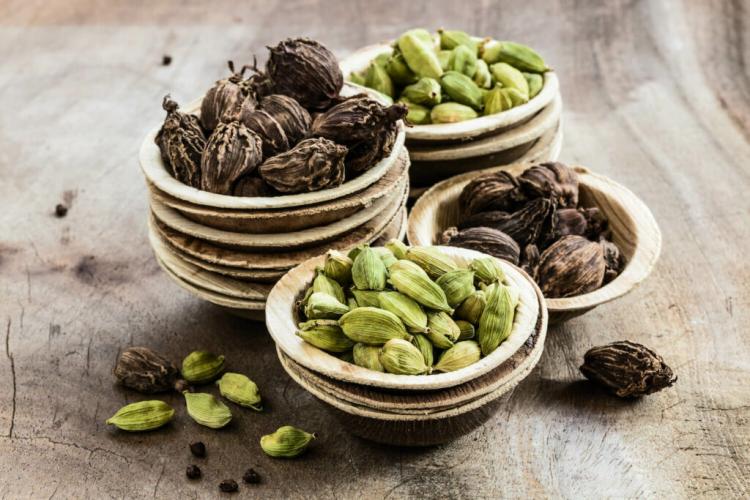
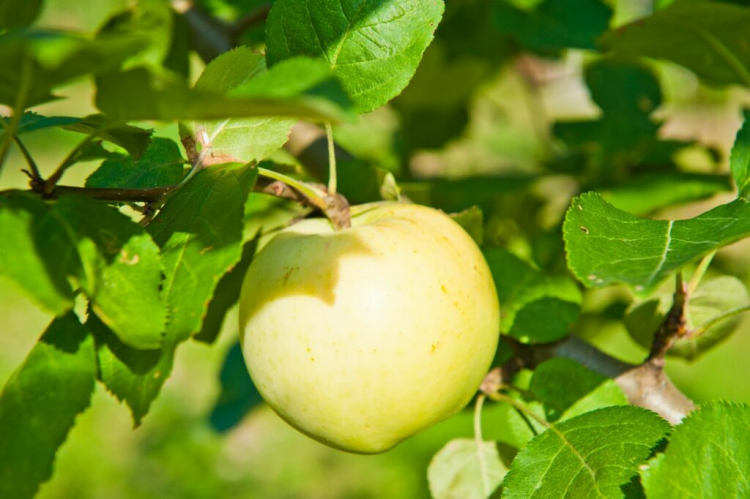
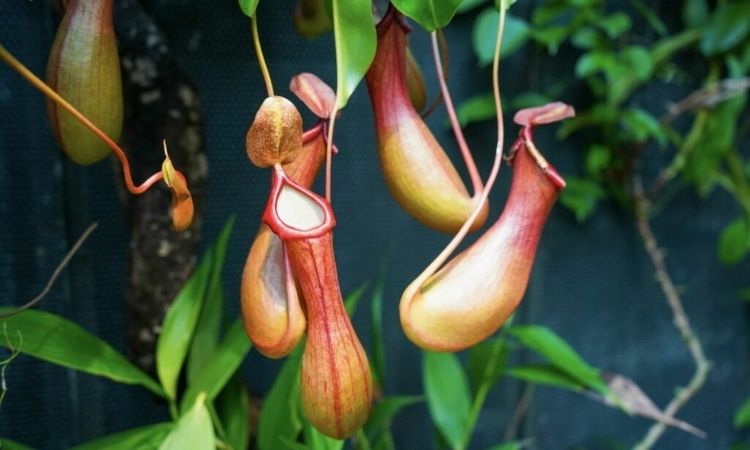
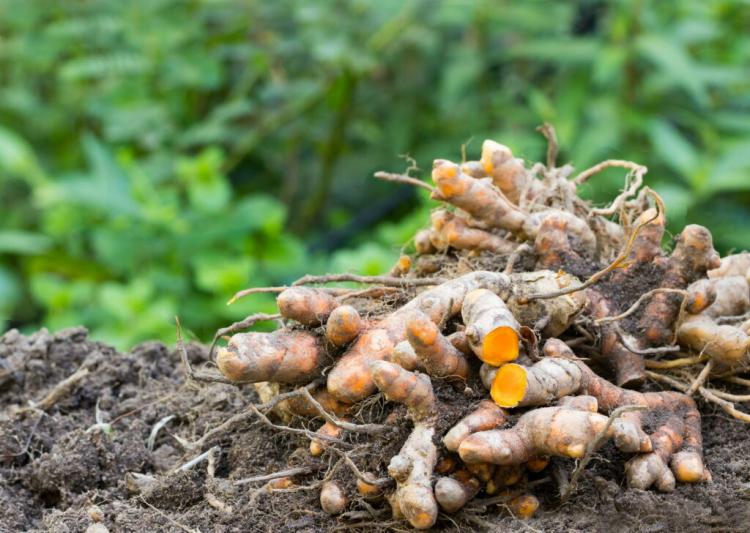
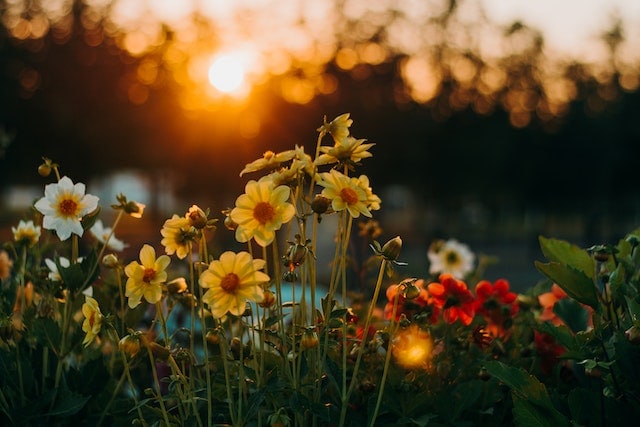
Hello! Your site is very informative but where is your Search function?? Please advise.
Thank you!
Rebecca